There's nothing more disruptive to a movie night than the dreaded spinning red circle. You're settled in, invested in the story, and suddenly your screen freezes. If you're constantly wondering why does Netflix keep buffering, you're not alone. This frustrating lagging and slow loading can be caused by a number of issues, but the good news is that most of them are fixable.
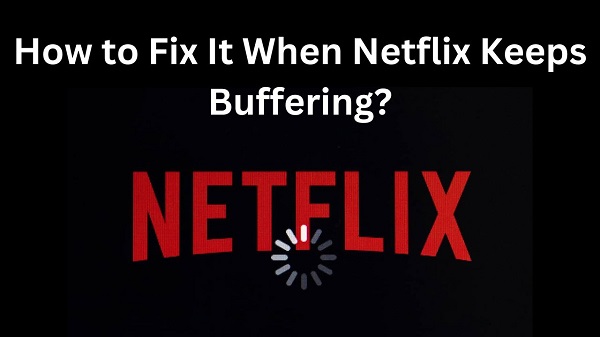
This guide will break down the most common causes of Netflix buffering and provide a clear, step-by-step plan to help you solve the problem and get back to uninterrupted streaming.
Part 1. The Main Reasons Your Netflix Is Buffering
Before diving into solutions, it's helpful to understand where the problem might be coming from. Generally, buffering issues can be traced back to one of three main areas.
1. Your Home Network
This is the most common culprit. It includes not just your internet plan's speed, but also the stability of your Wi-Fi signal, congestion from too many devices using the network at once, and even your Internet Service Provider (ISP) intentionally slowing down your connection (throttling).
2. Your Streaming Device
The issue might be with the hardware you're using. Whether it's a Smart TV, Roku, or Amazon Fire Stick, an outdated Netflix app, a temporary glitch, or a full cache can cause performance problems that lead to buffering.
3. Netflix's Servers
Occasionally, the problem isn't on your end at all. If a massive number of people are watching a new hit show or a major live event, Netflix's own servers can get overloaded, causing slowdowns for everyone.
Part 2. How to Stop Netflix Buffering: A Step-by-Step Guide
Now, let's walk through the most effective troubleshooting steps.
Step 1. Verify Your Internet Speed
A slow or unstable internet connection is often the main reason Netflix keeps buffering. For smooth streaming, Netflix recommends a minimum speed of 3 Mbps for HD and 15 Mbps for 4K Ultra HD. If your connection dips below these thresholds, buffering is likely to occur, especially during high-traffic hours. Check the table below for more detailed information.
| Video quality | Resolution | Recommended speed |
|---|---|---|
| High definition (HD) | 720p | 3 Mbps or higher |
| Full high definition (FHD) | 1080p | 5 Mbps or higher |
| Ultra-high definition (UHD) | 4K | 15 Mbps or higher |
Run a speed test on the device you're using to watch Netflix. If your results are consistently below these numbers, your internet plan may be the primary issue.
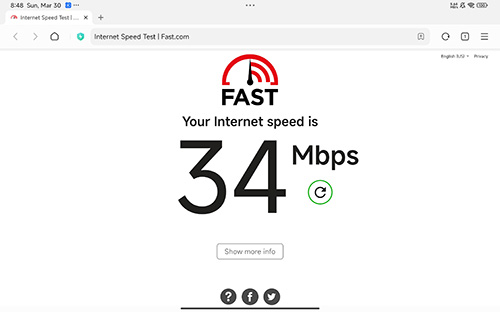
Step 2. Perform a "Power Cycle" on Your Network and Device
The classic "turn it off and on again" works for a reason. Restarting your hardware clears temporary glitches and resets all connections.

First, unplug your modem and Wi-Fi router from power. Wait 60 seconds, then plug the modem back in. Once it's fully online, plug in your router. Then try and see if the problem solved.
You can also try to reset the network on your device, here's how to do it on mobiles:
For Android Users:
Step 1. Open the Settings app on your phone.
Step 2. Scroll down and tap either "General Management" or "System".
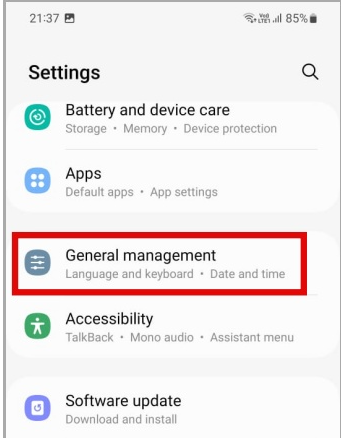
Step 3. Click the "Reset" option, and tap the words "Reset network settings".
Step 4. Wait for your phone to restart. When completed, open Netflix again.
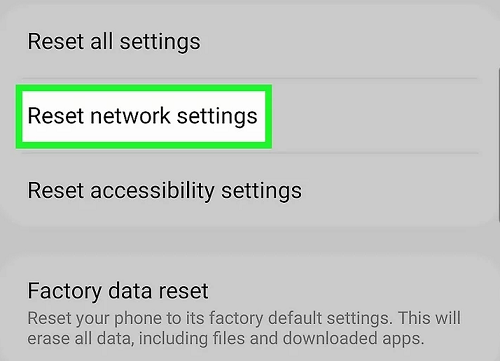
For iPhone Users:
Step 1. Go to the Settings app on your iPhone.
Step 2. Scroll down and tap on General.
Step 3. Find the "Reset" option, and choose "Reset Network Settings".
Step 4. Your iPhone will restart automatically, when finished, open Netflix again.
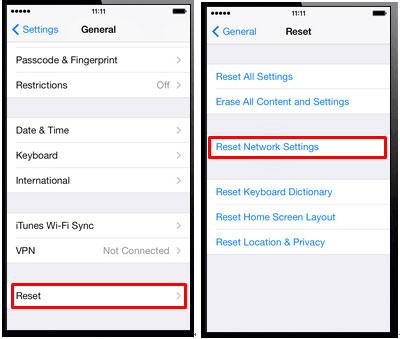
Step 3. Optimize Your Wi-Fi Signal
Even with fast internet, a weak Wi-Fi signal can cause Netflix to keep buffering. Physical distance and obstructions like walls weaken the signal. Try moving your router closer to your streaming device or, for the most stable connection, use a wired Ethernet cable to connect your device directly to the router.
Step 4. Adjust Netflix Playback Quality Settings
If your connection is unstable, you can manually lower the video quality to reduce bandwidth demands.
Log into your Netflix account, go to "Account -> Profile & Parental Controls -> [Your Profile] -> Playback settings", and change the data usage setting from "Auto" to "Medium" or "Low".
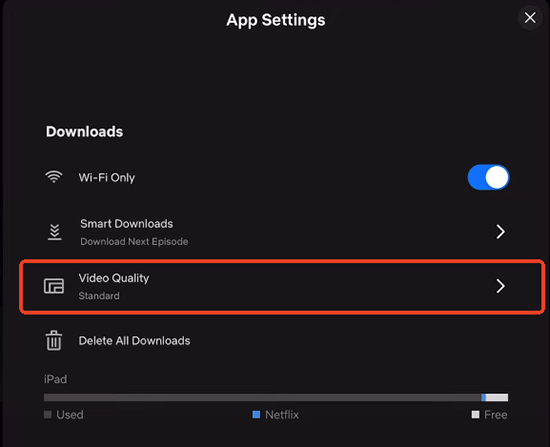
Step 5. Update or Reinstall the Netflix App
An outdated app can have bugs or compatibility issues. Go to your device's app store and check if there's an update available for Netflix. If it's already up-to-date, try deleting and reinstalling the app to ensure you have a clean, current version.
For example, let's see how to reinstall Netflix app on Smart TV:
For Android/Google TV Users:
Step 1. Select "Search", and type "Netflix" to search for the app.
Step 2. Click on the "Install" button.
Step 3. When completed, click on the "Open button" to launch Netflix again.
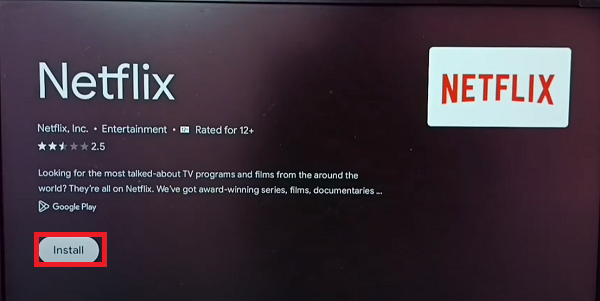
For Apple TV Users:
Step 1. Press and hold the center of your remote's touch surface until the Netflix app starts shaking.
Step 2. Press the "Play" button on your remote, and click "Delete".
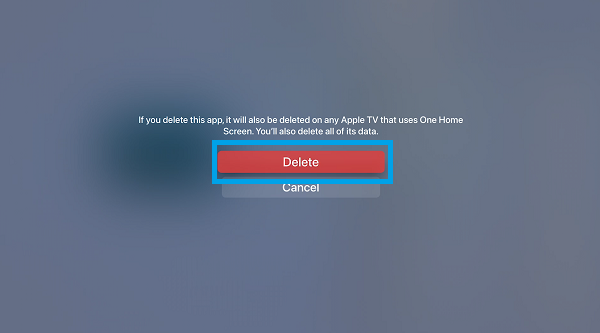
Step 3. Go to the App Store.
Step 4. Find the Netflix app under the Apps section.
Step 5. Tap on the cloud icon and open it when finished.
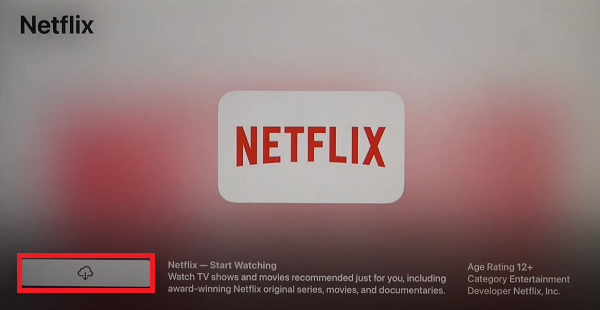
Step 6. Clear Your Device's Cache
Your device stores temporary data to help apps load faster, but this data can become corrupted. Clear the old or corrupted data can sometimes fix the Netflix keeps buffering issue as well.
For Android Users:
Go to your Settings app, select Netflix, and choose "Clear Cache" or "Clear Data".
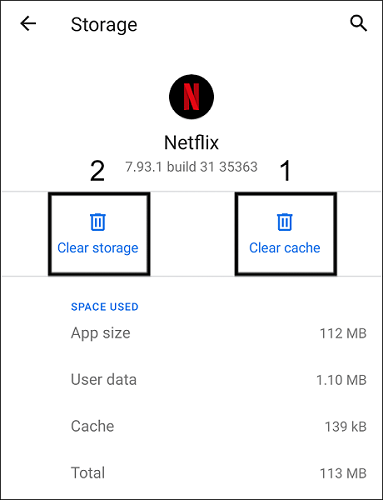
For iPhone Users:
Go to the Settings app, select Netflix, and slide the Reset switch on to reset the app.
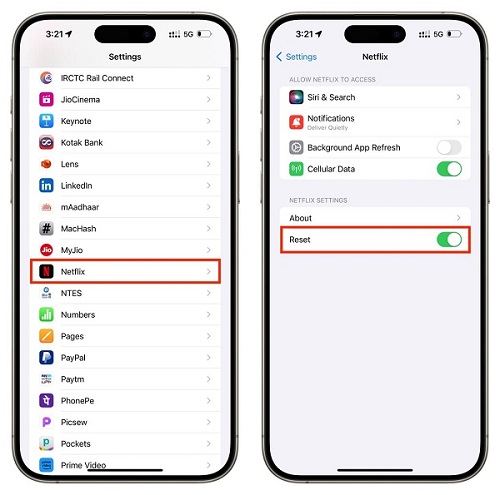
For Browser:
Step 1. Click the three dots icon on the top right of your browser.
Step 2. Select "Settings", find, and tap Privacy and Security on the left panel.
Step 3. Click "Cookies and other site data", then select See "all cookies and site data".
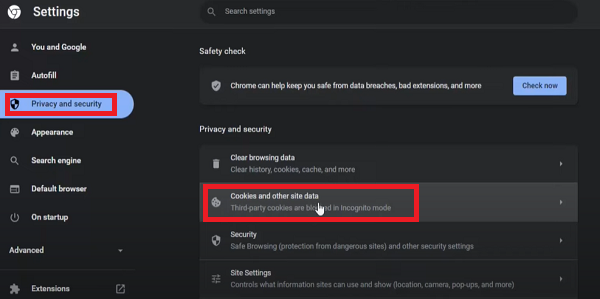
Step 4. You can delete cookies on the Netflix website, or click the "Remove All" option to delete all cookies on your browser.

Part 3. The Foolproof Solution to Eliminate Netflix Buffering for Good
Even after trying all these fixes, some problems—like your internet provider throttling your connection during peak hours or widespread Netflix server issues—are simply out of your control. So what can you do when Netflix keeps buffering for reasons you can't fix?
The answer is to take the internet out of the equation entirely. By downloading content in advance, you can create a flawless, uninterrupted viewing experience. StreamUlt Netflix Video Downloader is a powerful tool designed specifically for this. It allows you to download any movie or show from Netflix directly to your computer, building a personal offline library that is immune to buffering.
A Tutorial on How to Download Netflix Content with StreamUlt
Step 1 Sign in to Your Netflix Account
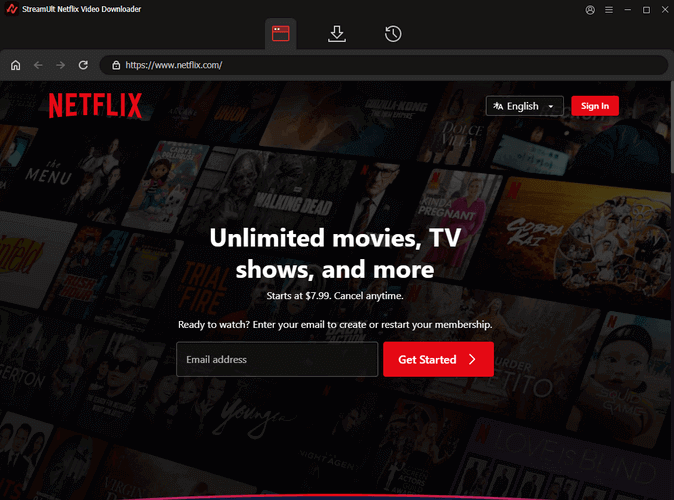
Open StreamUlt Netflix Video Downloader on your computer, and click "Sign in". Enter your Netflix email and password to access your account. Once signed in, you'll be able to browse the full range of Netflix content, including movies, TV series, documentaries, anime, and original productions.
Step 2 Adjust Download Settings
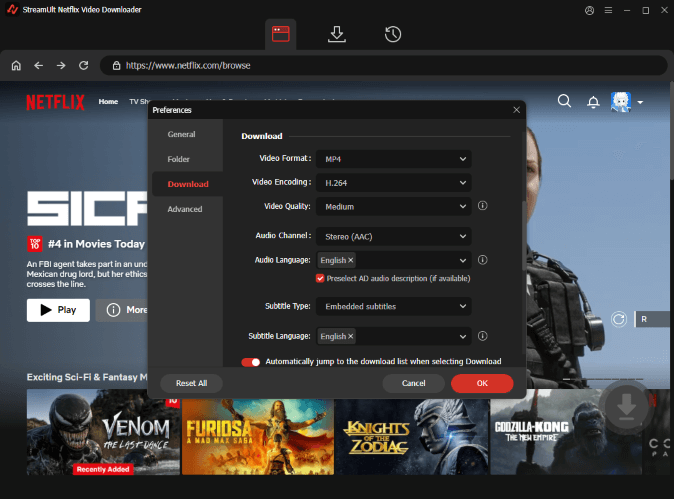
Click the hamburger icon in the top-right corner of the StreamUlt interface and select "Preferences". In the "Download" section, customize your preferences for video format, encoding type, video and audio quality, language, and subtitles. After making your selections, click "OK" to apply the changes.
Step 3 Choose Content to Download
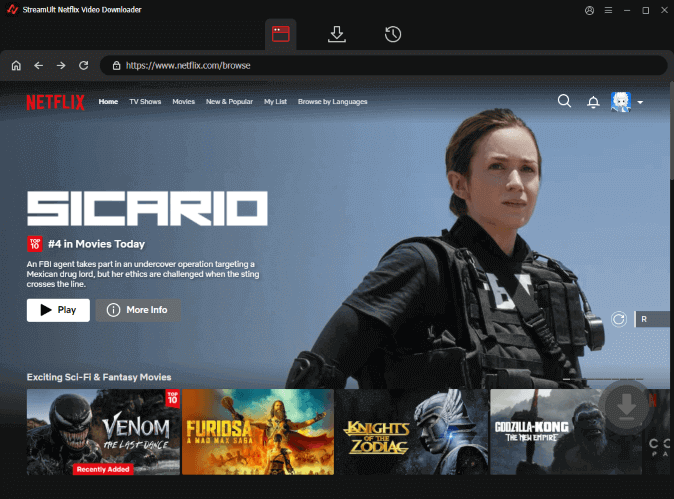
Use the search bar to look for specific shows or movies by title, keyword, or code. Alternatively, you can paste the URL of the Netflix content you'd like to download. Once you locate the desired video, click on it to proceed.
Step 4 Initiate the Download
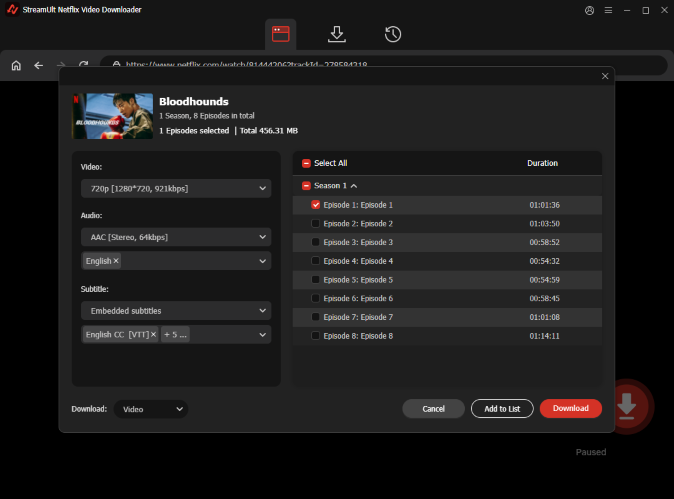
Pick the episodes you want to download and configure settings for video quality, audio options, and subtitles. When you're ready, click "Download" to begin. The episodes will be saved in MP4 or MKV format in the default file location.
Step 5 View and Play Downloaded Content
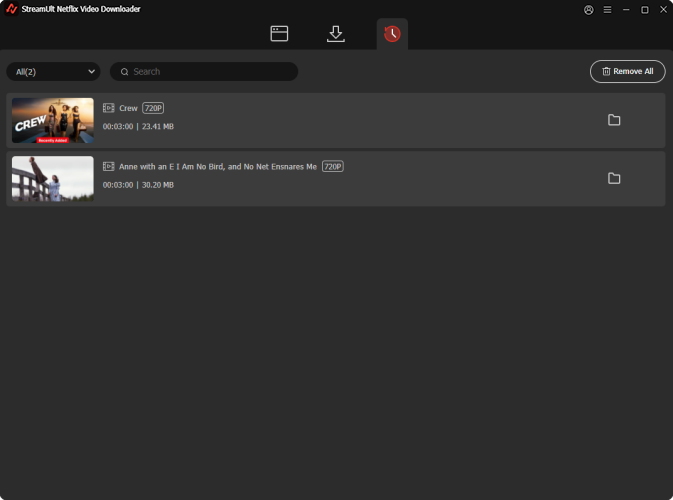
You can check the downloaded content by clicking the folder icon next to the video title on the right side. Then, you'd enjoy it on your computer, transfer it to your smart TV by using a USB flash drive, or send the video to your mobile phone.
Part 4. Conclusion
As we've seen, the frustrating issue of Netflix buffering can stem from various sources, ranging from your home Wi-Fi network and streaming device to issues on Netflix's end. By methodically working through the steps in this guide—from verifying your internet speed and power-cycling your hardware to clearing your device's cache—you now have a complete toolkit to diagnose and fix most of the common causes of streaming interruptions.
However, for those times when the problem is out of your hands, such as ISP throttling during peak hours or widespread server strain, the most reliable solution is to download your favorite shows and movies with StreamUlt Netflix Video Downloader.
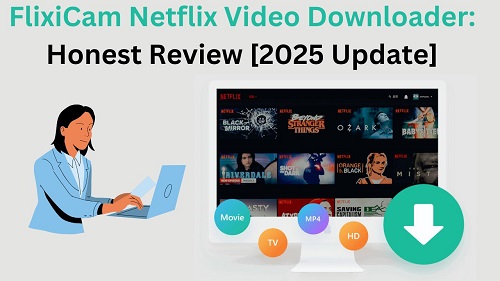
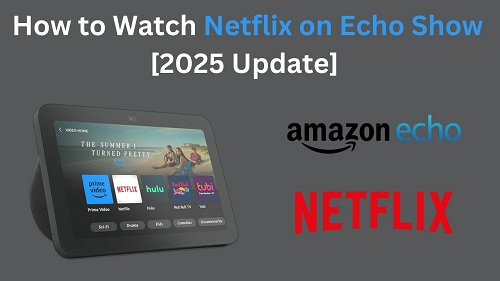
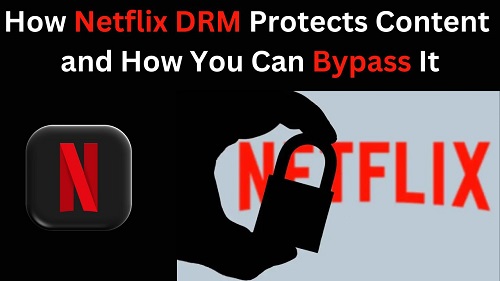

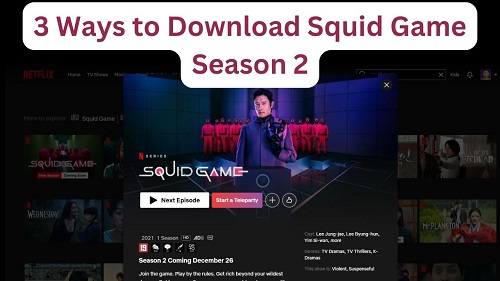
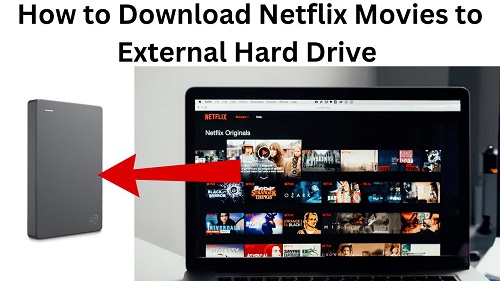
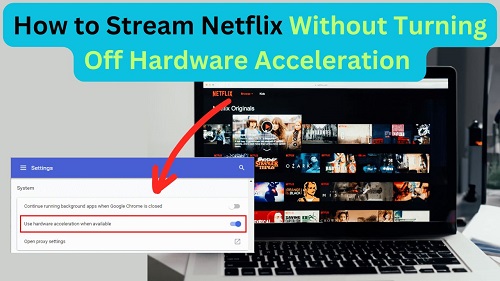
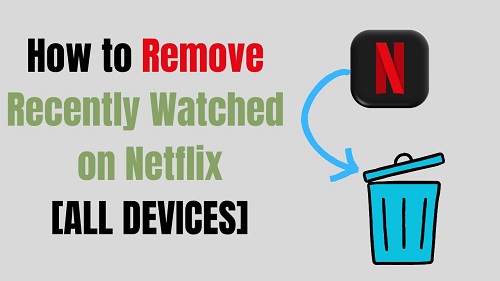

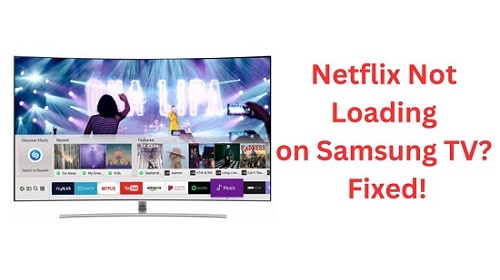
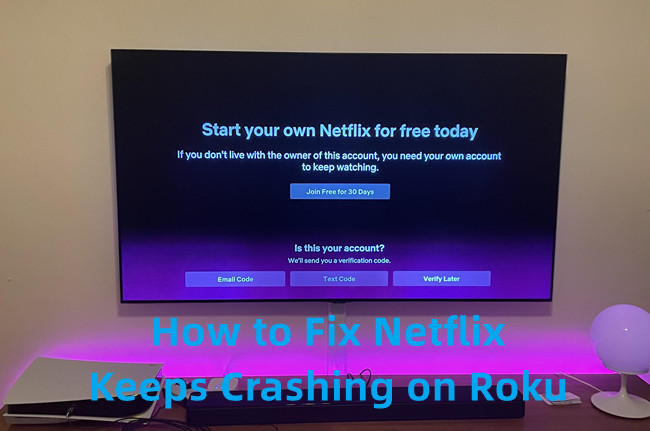
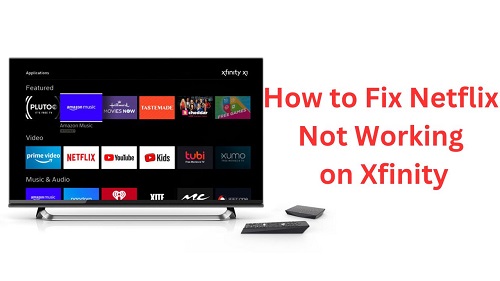
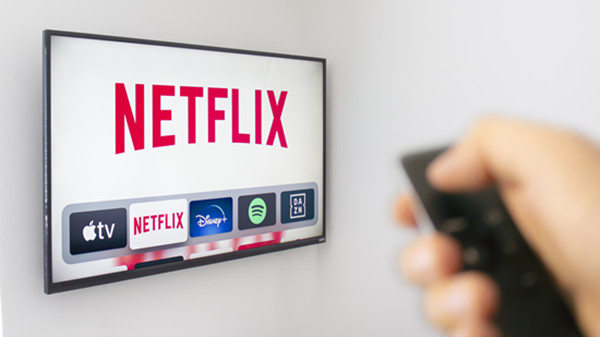
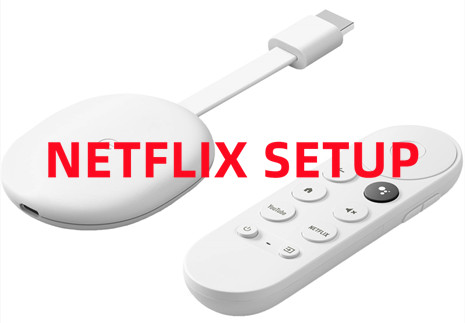

Leave a Comment (0)